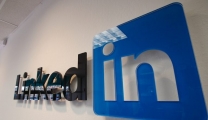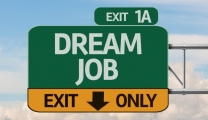The most days off
Germany is Europe's largest economy with an unemployment rate of just 4.1 percent. German productivity is the highest in the world. However, that does not mean that the Germans are seen as workaholics and stereotypes. They are the people with the most days off (both vacation days and public holidays) of all workers in every European country.
Workplace language
The language of German work culture has a confusing balance between work and play. In addition to the word "Mahlzeit", Germans also use sentences such as: "Erst die Arbeit, dann das Vergnügen" (meaning "Do it first, play later").
The phrase “Arbeitsunfähigkeitsbescheinigung” has a complex meaning of “work”, “incompetence” and “certificate”. This is a word often used when you need to ask for sick leave to avoid twisting questions from your boss. According to Ulrich Juergens, an expert on corporate governance, the word also reflects German attitudes towards taking leave. “Germans often have this mindset that whenever you feel unwell, you should stay at home,” says Ulrich.
Meanwhile, in many parts of the world, employees who resign from work can receive a scowl from their boss. Therefore, many people go to work in a state of sluggishness. That is also the reason why the number of sick days per year of Germans is always twice as high as that of other countries.

Lunch is very important
“Having lunch together is very important in the work culture in Germany. If you schedule a meeting from 12 to 13 pm, the staff will be very angry with you. You are intruding on someone else's break. Even paying them to work during their lunch hour.” Markus - manager of Volkswagen headquarters in Wolfsburg said about the office culture in Germany.
The word “Mahlzeit” in the workplace culture also reminds German employees of the need to be protected from workaholic bosses (who are obsessed with the “programmatic work” culture. are meticulously planned).
Work and play
The word "Schoenen Feierabend" (combination of "party" and "evening") marks the dividing point between work and play. The Germans even have the word 'Feierabendbier', which combines the meanings of the words 'party', 'evening' and 'beer'.
Although in Germany there are still many workers who work continuously for long hours and skip lunch. But in general, Germans still have a clear distinction between work and social life. That shows indirectly through the words they use in the workplace.
Satisfied with life
Statistics show the disparity between Germans' satisfaction with work and with life. According to the European Union's Statistical Office (Eurostat), German workers are among the least satisfied with their jobs despite having a highly desirable workplace culture (along with the British). However, Germans have the highest level of life satisfaction on the continent.












Replies to This Discussion